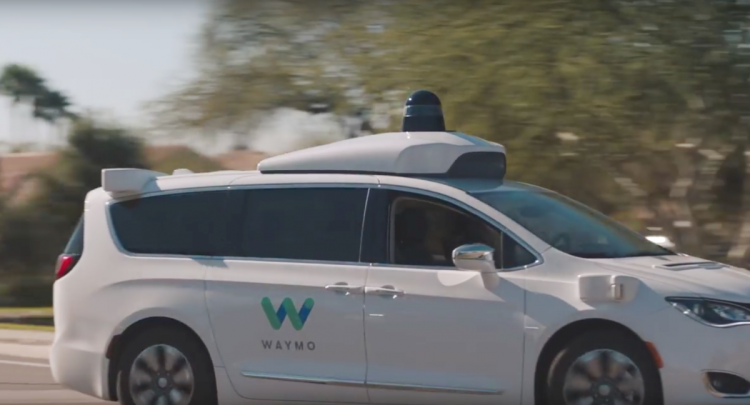Alphabet self-driving subsidiary Waymo today pulled back the curtains on its ongoing partnership with Lyft, which the two firms announced in 2017. In the coming months, Waymo plans to deploy 10 of its driverless vehicles (with safety drivers behind the wheel) on Lyft’s ride-hailing platform in the Metro Phoenix area, the site of its commercial Waymo One taxi service. Lyft users within range of those vehicles’ routes will have the option to select one for eligible rides.
As TechCrunch points out, it’s much like Lyft’s collaboration with self-driving car startup Aptiv, which makes a small fleet of autonomous vehicles available to Lyft customers in Las Vegas. As of April 2019, they’ve given more than 40,000 rides.
“This first step in our partnership will allow us to introduce the Waymo Driver to Lyft users, enabling them to take what for many will be their first ride in a self-driving vehicle,” Waymo CEO John Krafcik wrote in a blog post. “We’re committed to continuously improving our customer experience, and our partnership with Lyft will also give our teams the opportunity to collect valuable feedback.”
It’s been six months since Waymo launched Waymo One, and in that time, Waymo says it’s grown to serve over 1,000 riders.
June 5th: The AI Audit in NYC
Join us next week in NYC to engage with top executive leaders, delving into strategies for auditing AI models to ensure fairness, optimal performance, and ethical compliance across diverse organizations. Secure your attendance for this exclusive invite-only event.
Recently, weeks after the company announced that it would dedicate a factory in southeast Michigan to the production of level 4 autonomous cars — that is, cars capable of driving without human supervision in most conditions — Waymo revealed that it has settled on a location in Detroit.
Waymo also said it’ll work with a range of automotive partners — including Canadian company Magna — to outfit cars with its driverless system, and it claims the retrofitted factory will be the first of its kind when it kicks off operations in mid-2019.
Waymo currently operates a roughly 20-person, 53,000-square-foot office in Novi, Michigan that opened in 2016. And it tests driverless Chrysler Pacifica hybrid minivans in Detroit that are produced in Windsor, Canada and shipped to Novi, where they’re outfitted with hardware and software by Waymo and Chrysler engineers.
Last year, Waymo expanded its full-service center in Chandler, Arizona — which houses operations and support teams, including fleet technicians, fleet dispatch, fleet response, and rider support — to 60,000 square feet. More recently, the company said it would open an 85,000-square-foot technical service center in the city of Mesa, Arizona, near Phoenix’s East Valley, which it expects will “more than double” its capacity to maintain the fleet of cars in Waymo One.
Waymo also announced last year that it would add up to 62,000 minivans to its fleet, and it has signed a deal with Jaguar Land Rover to equip 20,000 of the automaker’s Jaguar i-Pace electric SUVs with its autonomous system by 2020.
Waymo has competition in Daimler, which last summer obtained a permit from the Chinese government allowing it to test autonomous cars powered by Baidu’s Apollo platform on public roads in China, and Beijing-based Pony.ai, which has raised $214 million in venture capital and in early April launched a driverless taxi pilot in Guangzhou. They’re just the tip of a very big iceberg.
Startup Optimus Ride said earlier this year that it would build out a small autonomous shuttle fleet in New York City, following news of driverless car company Drive.ai’s expansion into Arlington, Texas. GM’s Cruise Automation has been testing a driverless taxi service for employees in San Francisco and plans to launch a public service this year. Other competitors include Tesla, Zoox, Aptiv, May Mobility, Pronto.ai, Aurora, and Nuro, to name a few.
But Waymo seems confident its momentum will help it to secure a chunk of a market that’s anticipated to be worth $173 billion by 2023. According to marketing firm ABI, as many as 8 million driverless cars will be added to the road in 2025, and Research and Markets predicts that there will be some 20 million autonomous cars in operation in the U.S. by 2030.


